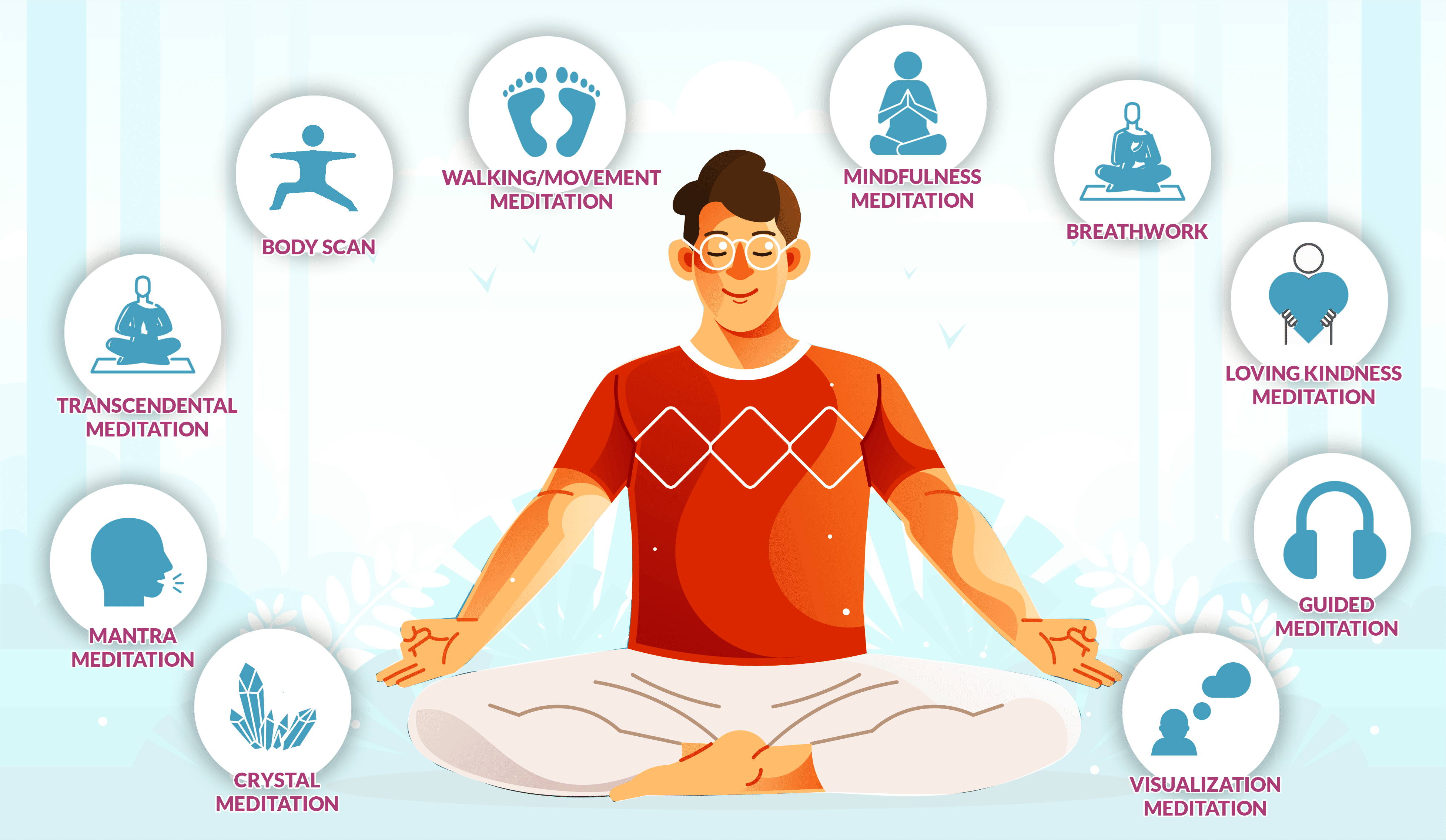
How to make affirmations work? You have probably heard of people using various mind tools such as the practice of daily positive affirmations.
On the surface, it seems quite simple and perhaps even too simple – that we create positive phrases and repeat them to help with things such as self esteem, achieve goals and improve our mood.
So, one of the common questions are: Do positive affirmations work?
Is there evidence to support the use of this practice on a daily basis?
Let’s take a look at the research, the mechanisms at play behind daily affirmations, and any caveats you might want to consider in every day life.
Are daily affirmations scientifically proven?
So, do positive affirmations actually work? According to mental health experts, the answer to this, is yes.
However, this doesn’t mean that positive affirmations will have an immediate magical effect and turn us automatically into happy people.
But self-affirmations can help to steer us toward positive change, thanks to something known as neuroplasticity.
Neuroplasticity refers to the capability that our brain does change consistently.
Examples, like taking time to practice just one new habit can make an actual change in the brain and how it perceives information.
Examples, like taking time to practice just one new habit can make an actual change in the brain and how it perceives information.

When we eliminate negative self-talk from our lives, little by little over weeks or months this makes a big difference on how we feel overall!
Now, positive affirmations are a great self help tool, but they do involve a daily healthy ritual to eliminate some negative beliefs about ourselves and the way we view the world.
It also involves you focusing on a set of imaginary scenarios and ideas that inspire positive feelings as it evokes positive imagery as opposed to continual fear based thoughts and questions.
Having a daily routine of practicing positive self statements and doing it consistently, we can actually make a physical change in our brain.
Many people use hypnosis audio programs like this one, to help guide them into more positive thinking patterns.
Think of it as reshaping it a little to be a more positive mindset, so our brain is more oriented toward our personal goals, or at least more aligned with the positive notions we want to set for ourselves in life.
The reason is that our brains don’t always know the difference between something real and something imagined.
The things we think about, imagine in our mind, visualize, dream about, all have a profound impact on our brain, almost as much as the real thing in life.
For an example, consider your life path and any impacts of those negative thoughts or negative feelings..
Even though they may not be real, they generate a lot of stress inside the body and lead to problems with our overall health.
Although they are imaginary, in a sense, they can impact our brain and shape it in a particular way.
So, positive affirmations work in a similar way. They influence the way our brain functions so it’s more productive and supportive of good habits like self esteem and a more positive sense of self.
Why are affirmations not working?
If there is a beneficial effect for positive affirmations, then how come it doesn’t work in some cases?

So the first thing to remember is that affirmations and self statements are not magic wands, but they do have an effect. Some people claim they noticed results fast, others take a little longer.
The key with using positive thinking effectively lies in being patient – it doesn’t work for everyone right away!
Here is what positive affirmations can do for you:
✔ Increase your motivation
✔ Make it easier to change your belief and habits
✔ Think more positively fulfilling better outcomes
✔ Visualize and connect with your goal
✔ Increase your confidence and believe in yourself
✔ Make you feel more positive emotions, like happiness and self-assurance
✔ Improves resilience and success

However, an affirmation unfortunately doesn’t do all of the work for us, although they can motivate us.
We do need to take some action on the actual changes we want to see, toward our mental and physical health and all of our other goals.
For example, if our life goal was to increase confidence overall, affirmations will help with this goal and start to make change with some of those negative feelings and belief about ourselves.
So it’s a great starting point for our thinking mind.
Try for yourself, how does it feel to be confident? Using these positive self statements and making sure you are not using any negative affirmations.
Self-affirmations do help, but they can’t do 100% of the work for us.
Another reason that affirmations don’t work, is that there may not have been enough time given for that positive affirmation to work.
Giving up way too soon is another sign for the old brain to confirm, positive statements and affirmations don’t really work?
Three days of self affirmations won’t have a strong enough impact. Our brain seems to trip us into a interrogative self-talk on why are we doing something new.
It might even give us some bad feelings along the way, just to prove we shouldn’t stretch ourselves toward a new goal or habit.
If this sets in, which is quite natural for most of us, perhaps include some healing affirmations on the list, be more kind and not punish yourself, if it doesn’t happen immediately. It’s OK to take your time in this new journey.

Give yourself a break from negative thoughts and keep re-affirming those positive affirmations.
You could take the approach of writing down five things you like about yourself and read them out loud in the morning every day infront of the mirror.
Create a strong sense of positive self worth, as positive thinking slowly releases that low self esteem and negative thinking.
We are more likely to develop stronger thinking thoughts towards the new values, beliefs and goals we want to achieve in life.
Another great idea is to write the date of when you started your new positive affirmations statement.
Give yourself an annual or monthly review of what shifts have actually transformed toward the new version of you, and which negative behavior patterns have been eliminated.
Some people find that using a journal with prompts inside, helps them along with any additional questions they may not have thought of as part of the healing process and transitional journey.
Reading each chapter about the changes you’ve made along the way, is interesting and motivates you to keep going with the amazing new version of yourself and your goals.
You can even set this special journal up like a “future orientation” on how you want to see things in your future life, which could be a few weeks, months or year from now.
This Law Of Attraction Journal has to be one of my favorites that I love to use, as it has prompts, showing how to become the best possible version of myself, on many different levels.
It has so many success and mindset tools inside like:
• Mind maps
• Habit trackers
• Morning and evening routines
• One of my all time favorites, is the foldable vision board inside, that you can carry with you no matter where you go. (A tangible object you can touch and feel, helps with magnetizing the goal you’ve set for yourself.)
This will not only help you to be accountable to yourself, but you can see the positive and successful changes along the way that you are making, month to month.
You may even incorporate a spontaneous self-affirmation dialogue into the mix, making your feelings shift to a whole new level, as you “rip out that negative self-talk”.
Let’s face it, that negative self talk doesn’t help in any way right?
But the positive affirmations can only improve your new frame of mind.
Don’t forget our brain does take time to change the way it thinks about things, so always remember to write loving and self care affirming statements too.
A third reason is that your positive affirmations may not be constructed in the best possible way?
Perhaps they are written in neutral statements or neutral affirmations as opposed to strong declarative statements which reinforce commitment. Being as specific as you can about your goal helps with the process.
It’s always good to start with a short list of affirmations to begin with, so the energy and your goal-directed behavior is more focused and fine tuned.

Check to make sure that:
• They are short and to the point
• They are not attached to self-limiting beliefs
• They are spoken in a declarative self talk
• They resonate with you and your core values
• They focus on a specific goal which incorporates emotion
• They are in line with the goal you want to achieve
Some people might not benefit as much from positive affirmations or positive statements on their sheet of paper, because they repeat them without engaging emotionally with little meaning or commitment.
For effective affirmations, try to visualize what you are expressing in the positive statement – see yourself as a confident individual, visualize yourself achieving that goal.
Make sure that you can see it, feel it, taste it, and experience all the sensory details.
When Should You Use Affirmations And When You Should Not?
So, what should you do with positive affirmations?
They are very versatile tools, but even so, they work best for some goals more than others.
They are useful for goals that have a strong emotional component and a strong motivational component.
Affirmations don’t replace actual actions, for example, exercising or eating well or changing yourself through your behaviors.
They can support behavioral change but not instantly replace them.
Benefits Of Affirmations?
There has been some research on the benefits of daily positive affirmations.
Let’s take a look at some established benefits.
✔ Affirmations are associated with lower stress
✔ Affirmations can cut down on the negative stress we feel that can hurt us physically and emotionally.
✔ Affirmations can support toward positive behavioral change
✔ In studies of health behaviors, people have improved their mental health more, when they used affirmations to support their work.
✔ Affirmations can open our minds and release some of those self-limiting beliefs.
Our affirmations can help us receive messages from other people and the world with more willingness and confidence toward our personal goals.

Even if we get difficult information, affirmations help us to be more adaptable of the information being received.
According to mental health experts, this means that mind tools such as positive affirmations can have actual effects.
They support us emotionally and help us get the right mindset to achieve our goals.
They don’t work miracles, but they are very useful and an easy-to-implement tool.
Affirmations provide opportunities for improving our emotional state and motivating ourselves.
When we visualize on we want and focus on it with positive statements and emotions, it increases the odds of a better outcome and a more successful and happy life.
The impact of self-affirmation on health-behavior change: a meta-analysis. Health psychology : official journal of the Division of Health Psychology, American Psychological Association, 34(3), 187–196. https://doi.org/10.1037/hea0000116
Harris, P. S., Harris, P. R., & Miles, E. (2017). Self-affirmation improves performance on tasks related to executive functioning. Journal of Experimental Social Psychology, 70, 281–285. https://doi.org/10.1016/j.jesp.2016.11.011
Disclaimer: Our web pages and blog posts provide general information for general purposes only and not to be used for any medical, legal or alternative health advice for any type of physical, mental health or financial concerns.Always speak to your practitioner before embarking on any new alternative treatments. If you have concerns about any medical matters, you should always consult your healthcare provider without delay.We thank you for taking full responsibility for your own health and wellbeing in life. ☺











